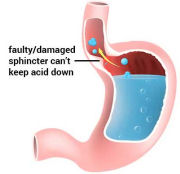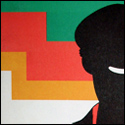|
Hello musically-talented goons, I'd like your opinion on something. I've been playing piano since I was 4. I've had three different teachers and I don't know how many hundreds of hours I've sunk into practice. I have a few songs memorized (some Bach, Moonlight Sonata, some Scott Joplin, etc.) and if you heard me play one of these pieces you'd think I was pretty darn good! But the only way I can do anything is by playing the same drat thing over and over (and over!) again until I have it memorized, and then it's all muscle memory. If I mess up in the middle of a song I'm hosed and have to start over. I'm terrible with music theory--I never know what key I'm in, I don't understand the circle of fifths, I sort of get the different chord types but I don't recognize them by sight or sound. I really struggle to read notation--getting the timing right is easy enough, it's figuring out the note itself that throws me and I have to sit there and go "A, B, C...okay this is a D." All the little black dots look alike. I've always dreamed of being able to just sit down and play with a group of musicians or singers, you know, jam with people in a fun and casual way, the way my super-talented dad and brother do. I'm absolutely not tone deaf; I have a great sense of rhythm and I hit all the right notes when I whistle or sing (and I can decently harmonize), I just can't seem to translate that into playing the piano. Has anyone else dealt with this weird mental block? Is there a name for the stupid way I play? Is there a particular teaching style I should try seeking out? Would I be better suited to another instrument entirely? (I took classical guitar lessons for a while but had similar problems.) I guess what I'm really asking is, after 24+ years of this poo poo should I just give up already? 
|
|
|
|

|
| # ? May 15, 2024 05:37 |
|
miserable lil onion posted:I guess what I'm really asking is, after 24+ years of this poo poo should I just give up already? I was in a similar situation until I took some music classes. To be a very proficient instrumentalist, you need a complete musical education - you just can't do without it. Also, I would say you shouldn't feel bad about not being able to accompany or sight read - these are actually very difficult skills and give plenty of real musicians nightmares. They are also very valuable skills and more than most other skills this is what will get you regular employment as a musician. Put me in the category of hopelessly abysmal at sight reading. I would rather toil 6 hours a day learning transcendental etude on the piano than sit down and practice sight reading - it's so bad that it's painful. I am a bad sight reader, and will probably always be a bad sight reader. Nevertheless, even though I rarely force myself to practice sight reading, just by learning lots of new music and doing other music related things (singing in a Chorale, taking music theory, etc.) that I don't hate so much, my sight reading is getting better one way or the other. I understand that the only way to get good at sight reading is to do a lot of it, plus a complete musical education. It comes down to recognizing hundreds of recurring patterns that can only be internalized by repetition and doing things 10 different ways. But if you're anything like me, you will get hooked on music classes. I have endless motivation to learn this stuff. Music theory is damned interesting. Singing is fun and always makes your day. Focused practice on the instrument is more rewarding because you will love your playing more if you can play to that high standard of beautiful music. Also, music is interesting in a way because it actually gets progressively easier until you have total mastery. The initial hurdles are very difficult but once you cross them, suddenly there is a light at the tunnel and pretty soon there's almost nothing about music you don't already know that isn't highly obscure and probably irrelevant. Music is 'infinite' in a creative sense but quite finite in a practical sense, which is one of the great insights of music theory. If you aren't a music major or planning a life of being a musician, you can still round out your education with the fundamentals of these areas without getting too heavily invested. Let me know if you have any questions in a PM and maybe I can help you out coming from a similar circumstance.
|
|
|
|
Thank you, that gives me hope! I'll actually be teaching at the local junior college in the fall and I get to take all the free classes I want--I'll see what they have going on in the music department. In the meantime I'll try to find some theory-teaching resources for home use.
|
|
|
|
Music theory is really helpful because it provides a "roadmap" of how music fits together. It's all about pattern recognition and helping you spot recurring themes, so that when you encounter a new piece of music, you have a sense of how to navigate it and what to expect -- it's not just a big pool of random unfamiliar notes. For example, intervals are sort of the building blocks which give a melody or harmony a particular "flavor". A minor third (three half steps, like C -> Eb) sounds mellow and reflective and a little sad. A major third (four half steps, from C -> E) sounds brighter and bolder. You can turn that into a triad (the most basic type of chord) by adding another note that's a fifth interval (seven half steps) from the root note, so that a Cmaj chord is C-E-G and a Cmin chord is C-Eb-G. You can move the root note around and count the same number of steps to find the triads for any major or minor chord (starting on D, a Dmaj triad is D-F#-A, Dmin is D-F-A. Bbmaj is Bb-D-F. And so on). Similarly, if you look at the notes in a scale, there's a particular pattern of whole steps and half steps. For a major scale, you count W-W-H-W-W-W-H -- C-D-E-F-G-A-B-C (since the distance between E and F is a half step, same between B and C) You can move that pattern to a different root note and automatically figure out the corresponding major scale (starting from D, it goes D-E-F#-G-A-B-C#-D). Minor scales work the same way except you count the pattern a little differently, W-H-W-W-W-H-W (so that a Cmin scale is C-D-Eb-F-G-A-Bb-C). And that's how key signatures work, where the particular pattern of sharps and flats falls when you count those patterns of whole and half steps. (And again, if you take the first, third, and fifth notes of a scale, you get the corresponding major or minor triad). There's other types of scales and chords of course, but they are all built up from fairly simple patterns that repeat themselves and intermesh all over the place. Ear training is really important too, and there's a lot of simple exercises you can do like playing a note, then predicatively singing (or even just mentally "hearing"), say, the minor third interval (C -> Eb) of that note. Musictheory.net has a lot of good interactive exercises like this, trainer.thetamusic.com is another one (which is a pay site, but you can try the first few levels of each exercise for free). Ear training is great because it will make it easier for you to learn new tunes, to play by ear, and to develop your "musical imagination". You also mentioned wanting to jam with people, which I highly recommend as a fun and rewarding way to learn. Musical improvisation is another skill which can be learned, it's just a somewhat different set of "muscles" than performing a pre-written piece. Even just knowing a little bit about how chords and scales work will give you a lot of ideas to experiment with, especially once you factor in variations of rhythm and phrasing. If you can find some people to jam with who are a little better than you (or are developed in different areas), that's one of THE best ways to grow as a musician. There are tons of fun rock/pop songs that are just 3 or 4 chords in a simple key (many of which are based on the blues, which is all about improvisation). I also really like traditional folk tunes (think like Irish/Celtic folk, sea shanties, hornpipes, etc.) because the tunes are simple and catchy and most of it in the same 2 or 3 keys. Anyway I think the kind of overwhelming feeling you are experiencing is extremely common even among people who have been playing for a lot of years. Theory seems huge and abstract at first, and there's a certain amount you kind of have to learn "on faith" until you've taken in enough to see how the pieces fit together. And then, well, there's always more to learn, it's an incredibly deep subject, but after a while you see how music theory is all about making your life easier. It's a lot like grammar; there are a lot of weird details and edge cases, but mostly it's there to help you see how musical ideas can flow together in a pleasing and understandable way.
|
|
|
|
So I really, really want to get the EHX RTG, but I have questions about how it should be connected. I know it's probably meant to be used with DJs or something who have multiple inputs and what not, but if I wanted to have it on a pedalboard and just plug it into a regular guitar amp, could I just plug it in via a Y-Cable, or would that wreak havoc on my tone? Alternatively, would a TBP looper be able to facilitate it?
|
|
|
|
Hey ML, I just bought some bongos. Can anyone point me to a good book or set of online lessons? I am a classically trained guitarist, so I have a good understanding of rythm and the staff, and I've had a practice pad and some sticks for a while, so I'm familiar with stick drumming rudiments and techniques, but I have never played a hand drum before and I'm not seeing the best way to proceed. A technique book like Pumping Nylon, except for hand drums would be ideal.
|
|
|
|
I'm transcribing a song that has, in one beat: a sixteenth note, then an eighth note, then a sixteenth note. Do I notate the middle note as an eighth note or two sixteenth notes tied together? It's the first beat of a song in 3/4, if that makes any difference. EDIT: My two choices, if it helps. Look at the second beat.  
CloseFriend fucked around with this message at 03:49 on Mar 21, 2013 |
|
|
|
I'd just write it as an eighth note. Usually the only time you need to use a tie is if the note crosses over into another measure, or so it'll line up with other notes on the same staff, like such: In the first measure, the tie makes it easier to read the timing with the lower note.
|
|
|
|
Yes CloseFriend, your first option is the correct one. But why is the before last note an A# and not a Bb? EDIT: Durr treble clef. >_< cactuscarpet fucked around with this message at 20:17 on Mar 22, 2013 |
|
|
|
cactuscarpet posted:Yes CloseFriend, your first option is the correct one. But why is the before last note an A# and not a Bb? C# shorely
|
|
|
|
I have a guitar amp that I haven't used in years because it's been reduced to mostly a crackling/rattle noise. Today I took it apart to see if there's anything I could do to fix it, and it seems like there's something broken inside the speaker cone itself. There's a piece that rolls around in there, and if you tap the cone then it makes the rattle noise. It's almost like what a spray paint can sounds like with the little metal piece inside it. Is there anything I can do to open this up and fix it or would it require an entirely new speaker cone? I'm just looking to repair it with things on hand so I can sell it for a few bucks, otherwise I'll give it away so someone else can deal with it.
|
|
|
|
You should just be able to undo some bolts and take the cone out for a more comprehensive examination.
|
|
|
|
If the voice coil is broken or detached inside the cone it's probably more cost effective to just get a replacement speaker. Unless it is some sort of collectible vintage speaker.
|
|
|
|
Is there a Musician's Lounge thread/hangout for people into looping live instrumentation, one-man-band type setups? I could see it going under the Ableton thread, the synth thread, live gigs....wanted to see if anybody else is into this sort of thing. I'm still building the hardware setup, but the whole experience is amazing and challenging.
|
|
|
|
EDIT: Never mind. VVV Don't worry about it, cheers for the feedback, ended up axing the whole thing! 
cactuscarpet fucked around with this message at 22:14 on Mar 27, 2013 |
|
|
|
Cheesiness aside, that's totally fine and I wouldn't know you weren't a native English speaker if you hadn't mentioned it! I guess to be picky I'd say 'to optimal grooving velocity' instead of 'into', and just for consistency I'd drop the capital D in Delta (or capitalise the other genres). Pulse-jockey is a weird phrase, at first I thought it was related to heart rates, but it sounds like a phrase you've coined so it fits with the cheesiness, like 'riders of the rhythm' or something edit- oh, want this deleting?
|
|
|
|
I'm trying to figure out a cost-effective PA solution for a surf rock trio expected to play crowds under 50 for smaller, outdoor gigs. Equipment currently in tow includes a crappy Nady wireless mic system with a big awesome antennae on it, a crappy Nady 4-channel mono/stereo mixer, and either a 600W Ashdown bass head or a little 15-30W Crate combo. Tried using the Crate at practice and couldn't hear it, so I'm going to try mixing it into the bass amp but I'm sure the levels will be all hosed up with the bass signal going in there too. Tone is no object, obviously. Any goonly experience and suggestions would be greatly appreciated. Jeff Goldblum fucked around with this message at 11:19 on Mar 31, 2013 |
|
|
|
Does anyone know what sort of effects/amp/guitar would be used to create the "psychedelic" guitar tone in Morning Sheets by Patrick Watson? Some reverb and a bit of overdrive? Tremelo maybe? Thanks.
|
|
|
|
Sounds like a fuzz pedal + a tube amp with tremolo and a bit of reverb.
|
|
|
|
Jeff Goldblum posted:I'm trying to figure out a cost-effective PA solution for a surf rock trio expected to play crowds under 50 for smaller, outdoor gigs. Equipment currently in tow includes a crappy Nady wireless mic system with a big awesome antennae on it, a crappy Nady 4-channel mono/stereo mixer, and either a 600W Ashdown bass head or a little 15-30W Crate combo. Tried using the Crate at practice and couldn't hear it, so I'm going to try mixing it into the bass amp but I'm sure the levels will be all hosed up with the bass signal going in there too. Tone is no object, obviously. Seems like those Harbinger powered cabs they have all around Guitar Center are becoming the poverty-spec standard for smallish PA gear. My brother has beaten the poo poo out of his Harb 12's and sub box, drunk beers spilled, overheating in hot venues, they keep on truckin'.
|
|
|
|
h_double posted:Usually the only time you need to use a tie is if the note crosses over into another measure This is maybe a slight oversimplification- so, for CloseFriend's benefit I'll mention that a good ground rule to follow is that you should beam, group rests and group notes according to the metre you've chosen: it'll change significantly even between metres of similar value: 3/4 or 6/8 and 4/4 or 12/8. How you beam and group notes will affect how players accentuate them and how easy it is to sightread. Here's an example from Behind Bars (which is a great notation book for anybody who has trouble with this stuff, like I do)  The section on 'Metre' in that book is over 40 pages long so it's not something you can fully explain in one post. Edit: that exact example CloseFriend mentioned is on page 171 as a common syncopation pattern where 1/16th, 1/8th, 1/16th should always be written that way (in one 1/4 note beat) and not as 4 1/16ths where the central two are tied together. Blinn fucked around with this message at 20:27 on Apr 2, 2013 |
|
|
|
Does anybody have suggestions for resources on MIDI? I'm trying to make something that I think should be pretty simple to do that would have a MIDI input, but everything I can find on utilizing MIDI focuses mostly on output and controllers. I still can't manage to find anything on the fundamentals of exactly how MIDI works. The official foundation webpage seems to focus on things like MIDI Tracks, and not too much of the underlying tech. There are kits, too, but most of them are ~$50 or more, and I'm almost certain that what I want to do would only require a $5-ish chip and some rough Assembly. Help?
|
|
|
|
Gorilla Salsa posted:Does anybody have suggestions for resources on MIDI? I'm trying to make something that I think should be pretty simple to do that would have a MIDI input, but everything I can find on utilizing MIDI focuses mostly on output and controllers. I still can't manage to find anything on the fundamentals of exactly how MIDI works. The official foundation webpage seems to focus on things like MIDI Tracks, and not too much of the underlying tech. There are kits, too, but most of them are ~$50 or more, and I'm almost certain that what I want to do would only require a $5-ish chip and some rough Assembly. I don't know if any of this will be helpful to you, but here are some sites that discuss the MIDI communication protocol itself, rather than just what's going on in the devices: https://ccrma.stanford.edu/~craig/articles/linuxmidi/misc/essenmidi.html http://www.gweep.net/~prefect/eng/reference/protocol/midispec.html http://www.midi.org/techspecs/index.php http://www.midi.org/aboutmidi/tutorials.php
|
|
|
|
I reassembled my studio recently and also ended up retooling my mixer wiring in the process. Tonight I tried to run some output from my computer (using Ableton Live) into my mixer, and then running the sound through some external effects. Sending the audio to the effects worked really nicely, but eventually I wanted to record the wet track and ended up almost blowing my headphone out due to feedback. My signal chain looks like this: Ableton Live || || \/ MOTU Ultralite || || \/ Mixer channel 13 || || \/ Effects (hooked up as a send/return with the mixer) Of course since I use the MOTU to record output of the mixer (and I am also sending sound from the MOTU to the mixer at the same time) I got some terrible feedback on the mixer when monitoring the recording channel inside Ableton. The way I have audio set up to route on my mixer and recording interface is kind of complicated, I can go into more detail describing it, but I basically want some advice or direction on how I can accomplish: 1) Recording a wet signal from my mixer on audio that the recording interface is outputting 2) Being able to feed the Ableton output into my mixer, along with my other synths/drum machines, and then being able to record the final result without creating feedback or any other signal loop. For reference, the Mackie LM 3204 mixer/MOTU is wired: Mixer main L/R ==> INPUT 7/8 on MOTU MOTU main L/R ==> Mixer Tape input (for monitor purposes) MOTU OUT 3/4 ==> Mixer channel #13 L/R (channel that carries Ableton output to mixer) I'm thinking maybe connect the Mixer Tape output to another IN on the MOTU? I don't really know how to do it perfectly, still wrapping my head around the issue.
|
|
|
|
tehschulman, is there a reason you absolutely need the mixer in that setup? Couldn't you set up your external effects as an aux send directly in Live? That is: 1) run an unused pair of outs from the MOTU to your effects box line in. 2) run the effects box line out to an unused pair of ins on the MOTU 3) put an External Audio Effect device on a track in Live (either as a direct track insert or on an aux return track). Set to "audio to" and "audio from" to the outs/ins on your MOTU that you used in steps 1 & 2.
|
|
|
|
It's a 16 channel line mixer, I have all my gear plugged into it so I can mix without using my computer. All of the 4 send/returns are taken up too, so using the MOTU out as a send/return won't be possible. If it's not something that's possible then I'll live with that, but I'd really like to be able to say, program an 808 drum line on Ableton and feed it into the mixer and then play my hardware synths over the drum line (and be able to record the finished product without too much trouble). At this point I just have to record everything into Ableton then compose Ableton stuff on top of the audio in recordings. #3 sounds like the most likely thing at the moment. I need to learn about more complex routings for my MOTU and also routing in Live.
|
|
|
|
Hey, I have a question concerning a studio set up. A room-mate of mine recently moved out, and I've decided to turn that room into my studio. I wanted to finally move my production equipment out of my bedroom, for better acoustics and to free up bedroom space. Now, one wall of my house is shared with the neighbouring house (it's a townhouse). Simply out of concern for my neighbours, on what side should I position my studio set up/monitors/subwoofer? The side that's shared with the neighbour is one of the short sides of the rectangle. I'm thinking my speakers would best be placed nearest the shared wall but facing away.
|
|
|
|
Hopefully someone can give some great advice... I used to do a lot of composing as a hobby up until 6-7 years ago with my GMIDI electric keyboard, Kx-Mixer Soundblaster, Roland MT-32, Roland Soundcanvas, Gigastudio, Cakewalk Pro-Audio 9 and lots of Gigasamples and Soundfonts I sunk money into. Kids came along, and now that they're a bit older I have a bit more free time - although since then my old rig bit the dust and we upgraded to Win7. Sadly, Gigasampler doesn't run on Win7 architechture, and the Kx-Mixer drivers a bit buggy when it comes to soundfonts. So I'm looking for suggestions; would it be cheaper just to repair my old winXP rig and use these old settings, or upgrade to new software that lets me take advantage of my library of soundfonts and gigasamples (and whatever sound sampling is popular these days) yet still lets me use some of my vintage GMIDI synths. Any info, advice or places to go seek advice would be greatly appreciated!!
|
|
|
|
I'm slowly but surely transitioning to an all-Mac setup after decades of doing music on PCs. It's been surprisingly seamless for the most part, as much of the software I own is on both platforms. However, there are two things I use a lot for which I have yet to find a suitable Mac replacement: Acid and Fruity Loops. Any suggestions? The Acid replacement in particular may be difficult, as I do a lot of compositions where I'm splicing little speech snippets together, sometimes hundreds in a single project. I need a quick and intuitive interface for browsing thousands of samples and shuffling them around in a timeline. Thoughts?
|
|
|
|
Ableton Live in Arrangement view immediately comes to mind as an accessible substitute in that role.
|
|
|
|
I know there's a limit to how many tracks you can have in Lite/Intro, but is there a limit to how many clips you can have per track? In Acid I usually just have two or three actual tracks, but with many dozens of clips on each. Basically track one will be for the main working draft, track two will be little multi-clip snippets I'm dragging around to play with, and track three will be an even less organized scratch pad of "things I'd like to incorporate if I can figure out how". Tracks 2 and 3 are usually muted. If Intro will do it, that would be great - I already own like five different copies of that from all of the interfaces I've bought, but I just haven't spent any time with it.
|
|
|
|
I would try out Reaper as an Acid replacement: http://www.reaper.fm/. I don't have experience with the Mac version but it does everything you're asking about. Non-expiring trial version or $60 for a license.
field balm fucked around with this message at 11:34 on Apr 16, 2013 |
|
|
|
field balm posted:I would try out Reaper as an Acid replacement: http://www.reaper.fm/. I don't have experience with the Mac version but it does everything you're asking about. Non-expiring trial version or $60 for a license. I just bought a license for Reaper a few days ago, but haven't tried it for this style of composition. I'll see how it works!
|
|
|
|
mofolotopo posted:I just bought a license for Reaper a few days ago, but haven't tried it for this style of composition. I'll see how it works! Good luck! Open the sample editor in the docker (the tabbed frame with the mixer in it by default). I used to do a lot of breakcore style editing in it, these are the key shortcuts you will want to use: alt-s turns on/off snapping the playbar to the grid s will split the currently selected item at the playbar shift-9 pitches down a semitone shift-0 pitches up a semitone There is probably a key to reverse items, but I'm not sure. Right click on the item and select 'reverse item as new take'. Hold alt and drag the edges of an item to timestretch it.
|
|
|
|
So is "stem" a new term for "multitrack", or is it something different?
|
|
|
|
beatlegs posted:So is "stem" a new term for "multitrack", or is it something different? The term is often used when another person is going to make a new mix from your material - situations like film mixing, or someone doing a remix of your song, etc. You won't give them each and every individual track, you'd give them a handful of stems (drums, guitars, keys, etc) and they'd construct the mix as they like. I don't think it's very common, but some mastering engineers do stem mastering if they want extra control over the individual components of a mix.
|
|
|
|
What is the best for the price midi-keyboard that you could use at live shows and really hammer on but still get good action?
|
|
|
|
I'm too poor to buy a microphone so how can I take a shure green bullet and put it on a microphone stand without breaking the bank on some $55 shock mount?
|
|
|
|
Duct tape.
|
|
|
|

|
| # ? May 15, 2024 05:37 |
|
Allen Wren posted:Duct tape. In the end you were half right. I found a broken microphone and took the handle end off and taped the Shure into it. Gotta get some electrical tape to keep the green and black motif
|
|
|


























